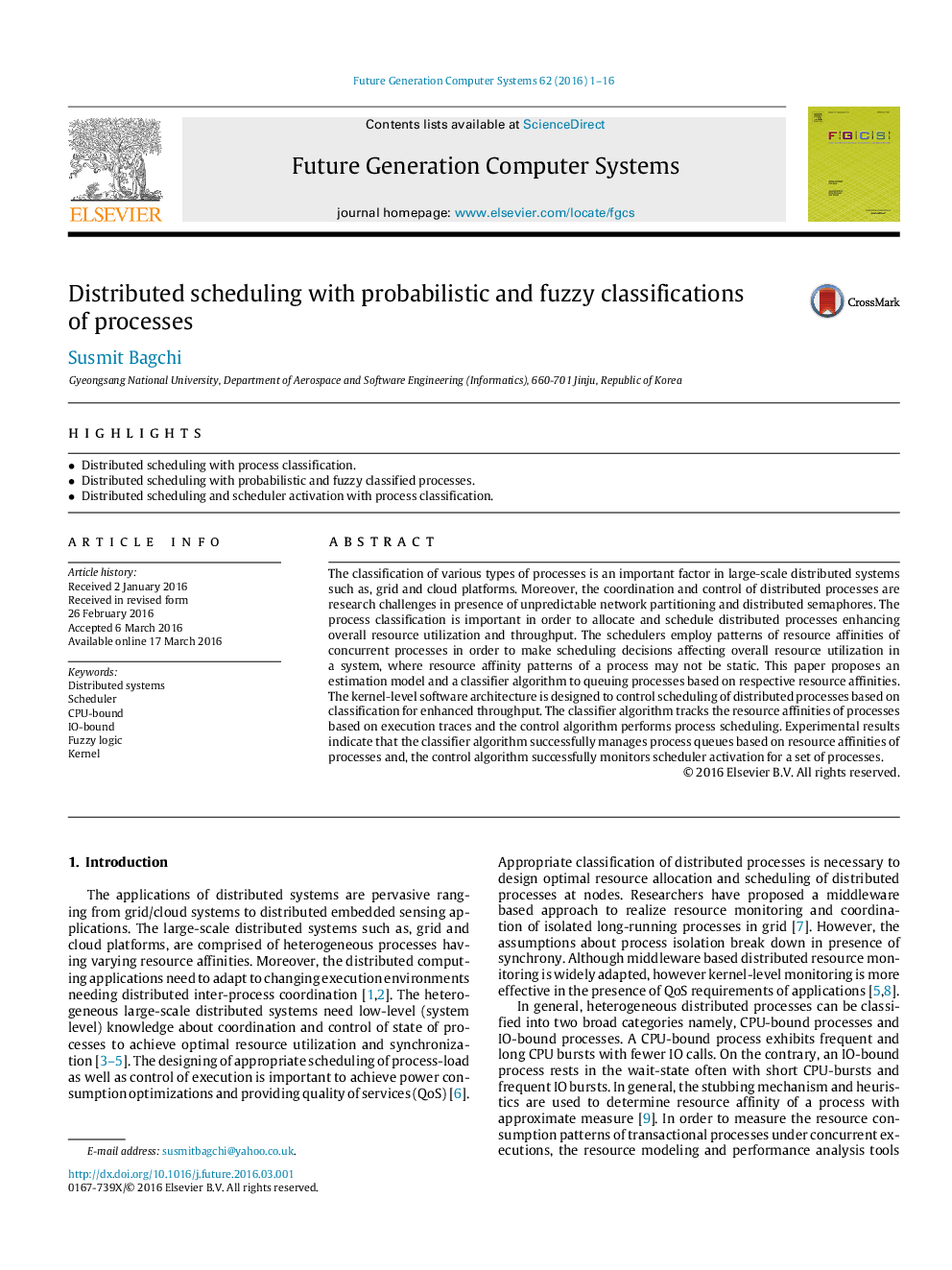| Article ID | Journal | Published Year | Pages | File Type |
|---|---|---|---|---|
| 425533 | Future Generation Computer Systems | 2016 | 16 Pages |
•Distributed scheduling with process classification.•Distributed scheduling with probabilistic and fuzzy classified processes.•Distributed scheduling and scheduler activation with process classification.
The classification of various types of processes is an important factor in large-scale distributed systems such as, grid and cloud platforms. Moreover, the coordination and control of distributed processes are research challenges in presence of unpredictable network partitioning and distributed semaphores. The process classification is important in order to allocate and schedule distributed processes enhancing overall resource utilization and throughput. The schedulers employ patterns of resource affinities of concurrent processes in order to make scheduling decisions affecting overall resource utilization in a system, where resource affinity patterns of a process may not be static. This paper proposes an estimation model and a classifier algorithm to queuing processes based on respective resource affinities. The kernel-level software architecture is designed to control scheduling of distributed processes based on classification for enhanced throughput. The classifier algorithm tracks the resource affinities of processes based on execution traces and the control algorithm performs process scheduling. Experimental results indicate that the classifier algorithm successfully manages process queues based on resource affinities of processes and, the control algorithm successfully monitors scheduler activation for a set of processes.
